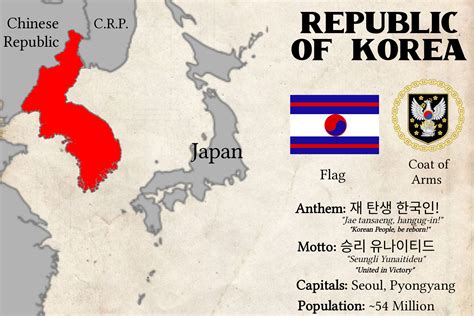Explore Grenada’s rich history from pre-colonial era to modern politics. Learn about colonization, Revolutionary War, struggle for independence, and political development.
Pre-colonial era in Grenada
Contents
The pre-colonial era in Grenada refers to the period before European settlement. This era is characterized by the presence of the indigenous Kalinago people, who inhabited the island for centuries before the arrival of the Europeans. The Kalinago, also known as the Caribs, were skilled in agriculture and fishing, and they had a complex social and political structure. They lived in villages and were organized into clans, with a chief leading each clan.
The Kalinago people had a strong connection to the land, and they utilized the natural resources of Grenada for their sustenance. They cultivated crops such as cassava, maize, and sweet potatoes, and they also hunted and fished in the surrounding waters. The island’s lush vegetation and fertile soil provided the Kalinago with everything they needed to thrive.
However, the pre-colonial era in Grenada was not without its challenges. The arrival of European explorers and settlers in the 15th century would eventually disrupt the way of life for the Kalinago people. The ensuing interactions and conflicts between the indigenous population and the European newcomers would shape the course of Grenada’s history for centuries to come.
Despite the eventual impact of colonization, the pre-colonial era in Grenada is a significant period in the island’s history, as it represents the rich and vibrant culture of the Kalinago people, and their enduring connection to the land.
Impact of colonization on Grenada
Colonization had a profound impact on Grenada, reshaping the island’s economy, society, and culture in lasting ways. The arrival of European settlers, primarily from Britain and France, led to the displacement and oppression of the indigenous Carib and Arawak peoples who had inhabited the island for centuries.
Under colonial rule, Grenada’s economy became heavily reliant on plantations and the exploitation of enslaved Africans for labor. The plantation system brought significant wealth to the European settlers, but at the cost of tremendous suffering for the enslaved population, who endured harsh conditions and brutal treatment.
The influence of European culture and customs, as well as the introduction of Christianity, also had a lasting impact on Grenada’s society. The island’s traditional way of life was disrupted and transformed as a result of colonization, leading to the emergence of a new, syncretic culture that blended elements of African, European, and indigenous influences.
Even after gaining independence from colonial rule, the legacy of colonization continues to shape Grenada’s social and economic landscape. The inequalities and injustices wrought by centuries of exploitation and oppression have had a lasting impact on the island, and efforts to address and redress these historical wrongs remain ongoing.
Grenada’s role in the Revolutionary War
Grenada’s role in the Revolutionary War was a crucial one, as the island played a significant part in the conflict between the American colonies and the British Empire. As a strategic location in the Caribbean, Grenada’s position made it an important target for both the British and American forces. The island served as a base for both military operations and as a source of crucial supplies for the warring factions.
During the Revolutionary War, Grenada became a hotspot for naval skirmishes and battles, with both the British and American forces vying for control of the island. The island’s strategic location and valuable resources made it a coveted prize, leading to intense fighting and military engagements. The outcome of the Revolutionary War was heavily influenced by the control of key locations such as Grenada, and the island’s role in the conflict was pivotal to the eventual success of the American colonies in gaining their independence.
The impact of Grenada’s involvement in the Revolutionary War had far-reaching consequences for the island and its people. The conflict brought about significant changes in the political landscape of Grenada, as well as in its relationship with the British Empire and the emerging United States. The Revolutionary War shaped Grenada’s future in fundamental ways, and its role in the conflict remains a notable chapter in the island’s history.
Today, Grenada’s participation in the Revolutionary War is commemorated and remembered as a crucial part of the island’s heritage. The legacy of the conflict and its impact on Grenada’s history continues to be an important aspect of the island’s identity, serving as a reminder of the sacrifices and contributions made by its people during this pivotal period.
Grenada’s struggle for independence
Grenada’s struggle for independence was a long and arduous journey marked by various challenges and setbacks. The quest for freedom from colonial rule began in the mid-19th century, as the people of Grenada sought to break free from the oppressive grip of British imperialism. Despite facing numerous obstacles, including violent reprisals and political repression, the movement for independence continued to gain momentum, fueled by a deep-seated desire for self-determination and sovereignty.
Throughout the 20th century, the people of Grenada actively campaigned for independence, leveraging non-violent resistance strategies such as protests, strikes, and civil disobedience. The push for self-rule also led to the formation of political parties advocating for sovereignty and autonomy, further galvanizing the nationalistic fervor of the Grenadian populace.
However, the road to independence was fraught with internal strife and external interference, as rival factions vied for power and influence within the burgeoning nation. The struggle for self-governance reached a critical juncture in the 1970s, culminating in the declaration of a state of emergency and the suspension of constitutional rights by the colonial administration.
Despite the formidable challenges, the undaunted spirit of the Grenadian people persevered, eventually leading to the hard-fought attainment of independence on February 7, 1974. This historic milestone marked a triumph of resilience and determination, signaling the dawn of a new era for Grenada as a sovereign and self-governing nation.
Modern political history of Grenada
Grenada’s modern political history is a complex and tumultuous one, marked by a series of dramatic events and shifts in power. In the late 20th century, Grenada experienced a period of political instability, with several changes in government and a coup d’état in 1983. The country’s political landscape was characterized by a power struggle between different factions, leading to widespread social and economic unrest.
During this time, *Grenada* was also subject to interference from external powers, particularly the United States and the Soviet Union, who sought to exert influence over the region. This led to further political turmoil and heightened tensions within the country, as well as significant consequences for its society and economy.
In the years following the turbulent events of the 1980s, Grenada has made efforts to rebuild its political system and establish stability. The country has held multiple elections, with a focus on promoting democracy and fostering peaceful governance. However, the legacies of past political upheaval continue to shape Grenada’s modern political landscape, influencing the perspectives and behaviors of its citizens and political leaders.
In the present day, Grenada is recognized as a parliamentary democracy, with a government that is composed of an elected prime minister and cabinet. The country has made strides in improving its political climate, engaging in international diplomacy, and addressing the challenges of the 21st century. Despite the hardships of its political history, *Grenada* has shown resilience and determination in its pursuit of a stable and prosperous future.












